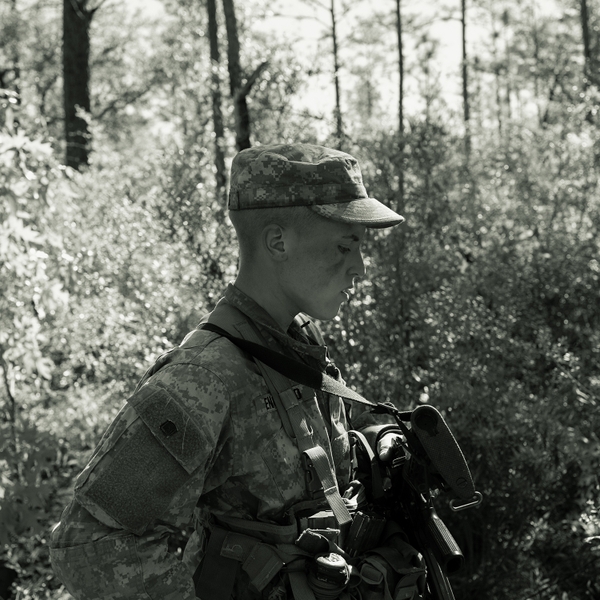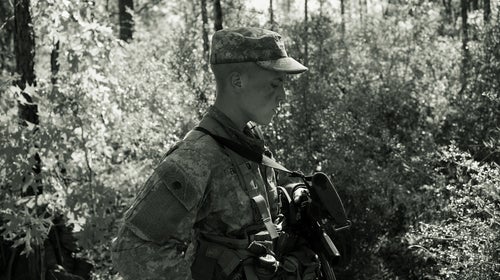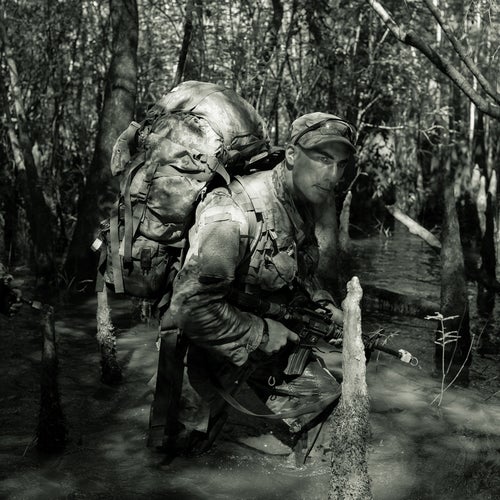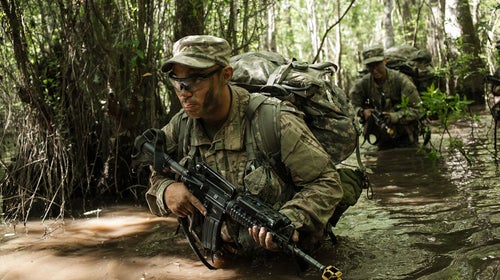Army Ranger School Is a Laboratory of Human Endurance
The military's toughest training challenges have a lot in common with outdoor sufferfests like the Barkley Marathons and the Leadville Trail 100: you have to be fit and motivated to make the starting line, but your mind and spirit are what carry you to the end. A Ranger graduate breaks down an ordeal that shapes some of the nation's finest soldiers.
Heading out the door? Read this article on the Outside app available now on iOS devices for members! Download the app.
Why the hell am I standing here, shivering on a remote mountain trail in the Appalachians?
The answer can be found in my dreams. Starting in 2006, I spent 13 violent months serving as an infantry officer in Iraq. Thankfully, I rarely revisit that experience while I sleep. But hardly a month goes by when I don’t wake up with a jolt, my heart racing. Each dream is different, but the basic plot is the same: I have to go back to Army Ranger School, which I graduated from in 2004.
And so I do.
In late February of 2019, I join 363 soldiers and officers comprising Ranger Class 05-19 at Camp Rogers, which occupies a remote corner of Fort Benning, just outside Columbus, Georgia. These young men, and a few women, are starting what is arguably the most demanding course in the military. (The Navy SEALS would beg to differ. Debate about whose training is tougher is never-ending.)
For the next 61 days, I’ll track them as they shed their ranks and any past military accomplishments. The course they’re taking on is divided into three parts: Benning Phase; Mountain Phase, at Camp Frank D. Merrill, in north Georgia; and Swamp Phase, at Camp James E. Rudder, on the Florida Panhandle. Aside from a few short trips home to check on my family, I’ll lug my own, much lighter rucksack alongside the students, over mountains and through swamps, as I experience what I believe is the first opportunity for a journalist to embed with a class all the way, observing every aspect of their training.
The students will be sleep-deprived, often getting only two or three hours’ rest on rugged terrain, with little more than a poncho to shield them from the elements. They’ll be perpetually hungry, their daily field diet of two MREs providing only 2,500 calories, a fraction of the estimated 5,000 they’ll burn lugging 90-pound rucks up and down mountains. By graduation day, many will have lost 20 pounds or more, their gaunt faces sometimes shocking family and friends who attend.
Why do they voluntarily subject themselves to this? First Sergeant James Lovett, a seasoned veteran of the Ranger regiment and an experienced Ranger instructor (RI), puts the question to me like so: “Is Ranger School primarily supposed to be a suckfest, or are we trying to teach something? Because one comes at the expense of the other.”
In modern America, lives of relative comfort have led some outdoor athletes to seek challenges designed to push them out of their physical and mental comfort zones, in the form of pursuits such as CrossFit, ultrarunning, and adventure races like the Spartan series. It’s tempting to view Ranger School as an extreme example of this urge. But to an extent I never fully appreciated as a student, I’ll discover that it’s as much an exercise in teamwork as an assessment of individual prowess.
To be functional enough to report the story, I’ll adopt a schedule similar to the Ranger instructors, shadowing the class 24 hours on, 24 off—earning me some good-natured jibes from exhausted and famished students when I arrive to greet them some mornings, well-rested and well-fed.
In addition to the chance to observe this ordeal, something deeper is driving me back, and it isn’t easy to articulate. In the words of Adam Hurley, a Ranger graduate and former Special Forces officer, Ranger School is “a unique laboratory that administers a self-aware serum.” Another Ranger graduate says, “I had a preconception of what kind of man I was, and Ranger School cut through the fluff and showed me who I was after I had been stripped down.”
My own experience trying to earn a Ranger tab for my uniform was humbling. A lifelong athlete, I reported to Camp Rogers in excellent physical condition, but I struggled to graduate. Ranger School almost broke the competitive drive I’d had my whole life. During Mountain Phase, I failed a knots test, and I ended up getting marooned at Camp Merrill for around five weeks, doing menial labor until I could “recycle” into the next class and try again. Eventually I made it through, but after that first failure I wanted to quit.
Somewhere deep in my psyche, that memory still haunts me. I feel a need to revisit a past that continues to exert a hold on me, and perhaps banish a few demons.














